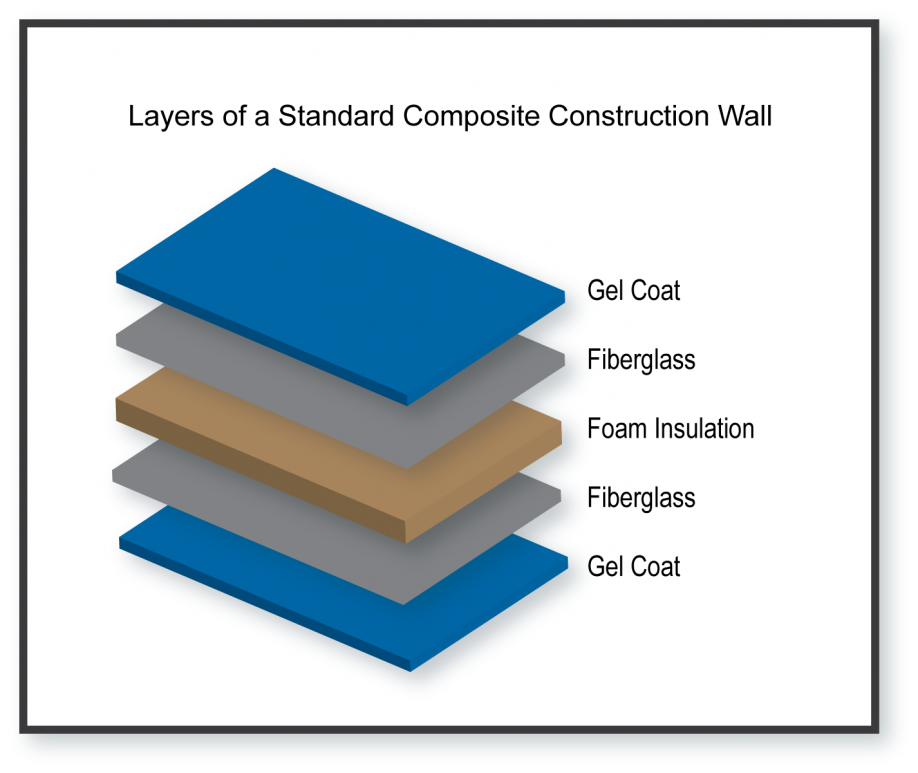Composites: The Future of Lasting Building And Construction Products
Discovering the Uses and Advantages of Recycled Composites in Modern Industries
The combinations of recycled materials with advanced composite modern technologies presents an encouraging opportunity for enhancing sustainability, durability, and cost-efficiency across various markets. As sectors look for innovative solutions to deal with ecological concerns and improve operational efficiencies, the consolidation of recycled composites arises as an engaging alternative.
Ecological Advantages of Recycled Compounds
The utilization of recycled composites in modern sectors uses considerable ecological advantages, contributing to the decrease of waste and the preservation of all-natural sources. By integrating recycled compounds into producing processes, industries can decrease their reliance on virgin materials, thus minimizing the amount of waste generated and the power required for extraction and production. This shift towards utilizing recycled compounds helps in drawing away materials from landfills, reducing the concern on waste administration systems, and lowering greenhouse gas exhausts associated with standard manufacturing techniques.
Furthermore, the usage of recycled compounds promotes the conservation of natural deposits such as hardwood, minerals, and water, which are commonly diminished via the removal and processing of raw products (composites). By prolonging the lifespan of materials via recycling, markets can aid preserve ecosystems and biodiversity by lowering the need for new sources. On the whole, the adoption of recycled compounds in modern-day industries plays an essential duty in promoting sustainability and reducing the environmental influence of production procedures
Enhanced Durability in Item Manufacturing
With an emphasis on durability and robustness, integrating recycled composites right into product production processes improves durability and sustainability. By using recycled compounds, manufacturers can produce items that are not only solid but also immune to damage, making them perfect for lasting use in numerous industries. The combination of various products in recycled composites can frequently result in improved toughness and sturdiness contrasted to traditional products, offering a cost-effective remedy for producing lasting products.
One of the vital advantages of using recycled composites in item production is the capability to customize the material residential properties to fulfill specific sturdiness demands. By readjusting the make-up and production strategies, manufacturers can tailor the recycled composites to endure severe ecological problems, hefty lots, or frequent use without jeopardizing on efficiency. This versatility in style and manufacturing permits the production of extremely resilient items that keep their stability with time, minimizing the need for constant substitutes and inevitably contributing to an extra lasting production procedure.
Cost-Effectiveness and Financial Benefits
Integrating recycled compounds into product manufacturing not only boosts resilience and sustainability but also provides substantial cost-effectiveness and financial advantages. Utilizing recycled composites can lead to reduced product costs as recycled products are commonly less costly than virgin products. In addition, recycling composite materials can lower waste disposal expenditures and decrease the requirement for landfill room, contributing to general expense savings for industries.

Advancement and Style Versatility With Recycled Composites
Making use of recycled composites in modern industries uses unmatched possibilities for technology and design adaptability. By incorporating recycled products into composite production procedures, business can push the boundaries of traditional design restrictions and check out new possibilities. The adaptability of recycled compounds enables the production of intricate shapes and structures that might not be possible with traditional products.
One of the essential benefits of recycled composites is their capacity to be formed right into numerous kinds, giving developers the liberty to try out distinct forms and sizes. composites. This flexibility opens a world of innovative opportunities, allowing the advancement of light-weight yet sturdy products that fulfill the specific needs of various markets
Furthermore, making use of recycled composites advertises lasting techniques and sustains the circular economic climate by minimizing waste and minimizing the environmental impact of manufacturing procedures. This emphasis on environmentally friendly layout options straightens with the expanding trend in the direction of sustainability in modern-day industries, making recycled compounds an important resource look at this now for cutting-edge and forward-thinking business.
Applications Throughout Different Industries
Recycled composites locate varied and impactful applications across a vast array of industries because of their distinct buildings and sustainability advantages. In the automobile market, these products are significantly utilized for producing durable and light-weight elements, boosting gas performance and decreasing carbon exhausts. The aerospace market gain from recycled compounds in the manufacturing of airplane parts, where the products' strength-to-weight proportion is essential for making certain safety and efficiency. In building, these composites are used for creating solid yet environmentally friendly building products, adding to lasting facilities advancement. The eco-friendly power sector uses recycled compounds in wind turbine blades and solar panels, harnessing their toughness and resistance to rough ecological conditions. Furthermore, the aquatic industry uses these materials for producing watercraft hulls and components, offering boosted durability and rust resistance. The convenience and sustainability of recycled composites make them beneficial across numerous sectors, driving advancement and environmental stewardship. composites.
Final Thought
To conclude, the application of recycled compounds in modern markets supplies significant environmental advantages, improved toughness in item production, cost-effectiveness, and economic advantages. In addition, the use of recycled composites permits for technology and design flexibility throughout various industries. Overall, the adoption of recycled composites presents a lasting view it and sensible solution for meeting the requirements of the sector while additionally reducing environmental impact.

One of the key benefits of using recycled compounds in product manufacturing is the ability to customize the material properties to meet details durability requirements. Making use visit homepage of recycled composites can lead to decreased product expenses as recycled materials are typically less costly than virgin materials. The aerospace sector benefits from recycled compounds in the production of aircraft components, where the materials' strength-to-weight proportion is important for guaranteeing safety and security and efficiency.